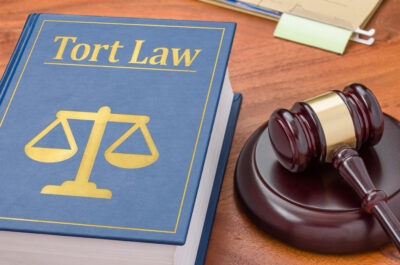
When someone acts in a way that causes harm to you, your property, or your dignity, perhaps through a car accident or slanderous accusations, you may be entitled to compensation under Georgia’s tort laws. To collect the compensation you deserve, seek representation from a John Foy & Associates Atlanta personal injury lawyer. Tort law can be complicated, and a variety of factors affect each case.
An experienced attorney will navigate these complexities with skill, giving you the best chance of securing a substantial settlement.
Definition of Tort or Tort Law
A tort is when someone acts, or fails to act, in a way that causes someone else injury or suffering. When the courts determine this action or failure of action was a “civil wrong” and infringed upon the victim’s rights, the person who committed the act can be held liable for paying the victim compensation.
Get the strong arm
The Functions of Tort Law
Tort law serves several functions. It helps to compensate victims for economic losses and acknowledge or “appease” pain, suffering, and emotional damage. Knowing the possibility of liability exists for a wrongful act can also deter perpetrators from committing those acts. Tort law can also be applied as punishment, and victims can collect “punitive” damages on top of compensatory amounts for especially vile or reckless acts.
The Three Types of Torts
Torts fall into three major categories; intentional, negligent, and strict liability:
- Intentional Torts: a person intentionally commits a wrongful act, causing harm to another person.
- Negligent Torts: a person violates a duty they owed the victim.
- Strict Liability Torts: a person is liable for another person’s harm even if the defendant had no intent to hurt the victim and did not breach a duty owed to the victim.
Intentional Torts Explained
When a person intentionally commits an act to harm another person, the perpetrator has committed an intentional tort. The harm incurred can be physical or emotional or can apply to property damage.
In many cases, an intentional tort involves a criminal act. However, torts are not tried in criminal court. If arrested for their action, a defendant may or may not be convicted of the criminal act in criminal court.
Even in those instances, you can still pursue a civil case to mitigate the damages the defendant’s intentional acts caused you and can still see a successful outcome, as the burden of proof for a civil case is lower than for a criminal case.
Examples of Intentional Torts
Georgia does not have an exhaustive list of intentional torts. If you are a victim, your attorney will know how to classify and pursue the actions taken against you. Some intentional torts, however, are more common than others.
- Assault: Someone threatens or attempts to harm you, though they did not actually touch you. Even though the perpetrator may not have “successfully” carried out their assault, the attempt is still unlawful.
- Battery: Someone carries out their threat and physically touches you. Whether the physical contact is harmful or offensive, in other words, it causes you physical injury or emotional distress, the person can still be charged.
- Defamation: Someone knowingly communicates a falsity or accusation against another. For example, if a coworker who is competing with you for a promotion falsely accuses you of something that leads to the loss of the promotion or your job, you may have grounds to pursue a defamation case.
Negligent Torts Explained
Torts falling into the “negligent” classification involved injuries caused by careless rather than intentional actions. In these cases, the at-fault party failed to fulfill their legal responsibilities and in this failure, harmed the victim.
Examples of negligent torts include car accidents in which the at-fault driver was distracted or speeding and crashed into the victim or slip-and-fall accidents in which a business owner failed to mark a wet floor causing a customer to slip and fall on the wet surface. Medical malpractice and other personal injuries also fall into the negligent tort category.
In negligent tort cases, victims have to prove four elements of negligence to secure a settlement. Since the at-fault party’s insurance and legal representatives will work to protect the defendant, it is in the victim’s best interests to have a skilled personal injury lawyer fighting on their behalf. The four elements of negligence are:
- Duty of Care: The defendant owed the victim an obligation to help keep them safe. Business owners owe it to their customers to keep their floors dry or marked when wet.
- Breach of Duty: The defendant did not fulfill their duty of care to the victim. A driver who fails to obey traffic signals has breached their duty of care to others on the road.
- Causation: The breach in duty of care directly caused an accident or harmful event.
- Measurable Damages: The accident or harmful event caused measurable damages to the victim.
Strict Liability Torts Explained
Strict liability can apply to tortious injuries caused when a person engaged in abnormally dangerous activities, owning a wild animal that harmed someone or apply to cases of product liability.
Abnormally Dangerous Activities
To be considered “abnormally dangerous,” an activity must be one that most people do not typically engage in and carry a reasonable, foreseeable risk for injury to people or property. Keeping barrels of toxic chemicals on your property is an example.
Wild Animals
Though perhaps the most famous, Joe Exotic is not the only person who has kept wild animals on their property. Mr. Exotic, and any other wild-animal keeper, is strictly liable for any harm these animals cause.
In some states, dog bites fall under strict liability laws. If a dog bites another person, the owner is responsible. Georgia, however, follows the one-bite rule. For an owner to be held liable, the victim must prove the owner knew the dog was dangerous.
Product Liability
If a person is hurt by a defective product or additives unintentionally included in a product, it does not matter that manufacturers did not mean to produce a dangerous product. They are still responsible for the damages that the product caused.
Securing a Just Settlement
Tort law is full of layers. Though an intentional act, negligence, or strict liability situation may seem obvious to you, cases are rarely straightforward.
A fair settlement can cover the following:
- Medical expenses
- Income loss
- Property damage
- Emotional distress
- Pain
- Reduced quality of life
Securing a just settlement is critical to your financial future and overall well-being. Therefore, you need an attorney well-versed in the nuances of tort law and ready to stand up even to large corporations who have their own legal teams.
Get Justice and Protect Your Future
When someone else’s intentional acts, negligence, dangerous choices, or defective products cause you harm, that party must be held accountable for your losses and suffering. To get the justice you deserve and the financial security you need for your household’s future, contact a tort lawyer from John Foy & Associates as soon as possible. We are ready to fight for you.
(404) 400-4000 or complete a Free Case Evaluation form





